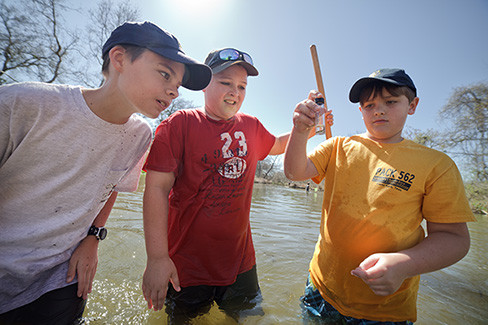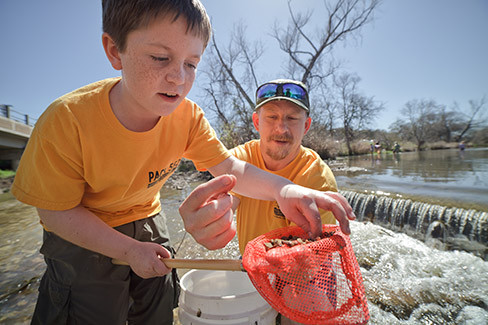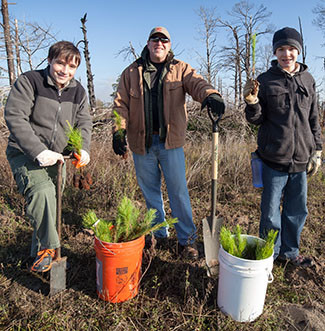You’ve likely seen us promote our Take Care of Texas Scout badges and pins, but have you considered everything that Scouting offers? If you have children or students who you want to introduce to environmentalism, consider Scouting
Conservation and environmentalism have been fundamental to the ethos of Scouting since the Boy Scouts – now simply known as Scouts – was founded in 1910. For decades Scouts have distinguished themselves by helping to conserve wildlife, energy, forests, soil, and water.
Many of the values, projects and awards that make Scouting special closely align with what we promote through the Take Care of Texas program. We’re exploring some of the platforms that make Scouting an important launch pad for getting young people to learn about, advocate for, and actively improve our environment.


